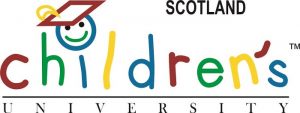Looking beyond the classroom to tackle the achievement gap
 by Neil Mathers, Chief Executive, Children’s University Scotland. Continuing our guest blog series featuring Informed Scotland subscribers writing on the theme Making connections across the learning & skills landscape.
by Neil Mathers, Chief Executive, Children’s University Scotland. Continuing our guest blog series featuring Informed Scotland subscribers writing on the theme Making connections across the learning & skills landscape.
In Scotland today almost a quarter of children are growing up in poverty, and many lack even the most basic essentials to help them thrive. Low income and material deprivation impacts on multiple aspects of children’s learning and creates inequalities at every age and stage of their education.
Children from the most disadvantaged communities are less likely to get a job, engage in training, or progress into further or higher education; in adulthood they are more likely to be out of work, earn less and be in low-status, insecure jobs. Poverty not only damages children’s prospects, but also affects their experience of life in the here and now.
All children and young people have the right to a good start in life, regardless of their background, but in order to change the lives of children growing up in poverty it is essential to intervene early and work across all aspects of children’s lives in a coordinated and sustained way.
Children’s University Scotland wants every child to have the opportunity to learn and pursue their ambitions to the fullest. We inspire learning beyond the classroom that enriches children’s lives, broadens their horizons and transforms their prospects for the future. We give a platform to thousands of children who want to try new experiences, develop new interests and acquire new skills.
We do this by working in partnership with schools, colleges, universities and other learning providers to provide access to affordable, high quality out-of-school learning that raises aspirations, boosts achievement and helps each child to achieve their potential.
Aspire is our programme for inspiring learning and celebrating achievement at every age and stage of a child’s life. Our online platform enables children and families to search for opportunities, track their progress and visualise their skills development. Participation in learning experiences is recognised and rewarded as children collect credits and unlock awards that celebrate their learning journey.
Looking beyond the classroom to deliver integrated after-school activities, such as study support, can have a significant impact on achievement. Targeted support such as peer tutoring, mentoring and helping children understand how to improve their own learning outcomes can also make a difference.
Most of a child’s learning takes place outside of school, and it is therefore critical to strengthen support for parents to engage in their children’s learning at home.
Over the next few years we aim to work at every age and stage of children’s education, strengthening the role we play in learning at home, increasing opportunities to learn outside of school and contributing evidence on what works to close the achievement gap.
To find out more or enquire about working in partnership, contact Neil at [email protected]
Website: www.childrensuniversityscotland.com
Twitter: @ChildrenUniScot Facebook: @ChildrensUniversityScotland
Read previous guest blogs in the series, including those from GTC Scotland, Be Personnel, SCEL, Clyde Gateway, EDT Scotland and SCQF Partnership.